MOVIE PREVIEW – While vacationing at a remote cabin, a young girl and her parents are taken hostage by four armed strangers who demand that the family make an unthinkable choice to avert the apocalypse. With limited access to the outside world, the family must decide what they believe before all is lost.
From visionary filmmaker M. NIGHT SHYAMALAN, Knock at the Cabin stars DAVE BAUTISTA (Dune, Guardians of the Galaxy franchise), Tony award and Emmy nominee JONATHAN GROFF (Hamilton, Mindhunter), BEN ALDRIDGE (Pennyworth, Fleabag), BAFTA nominee NIKKI AMUKA-BIRD (Persuasion, Old), newcomer KRISTEN CUI, ABBY QUINN (Little Women, Landline) and RUPERT GRINT (Servant, Harry Potter franchise).
The backstory
Of all the extraordinary achievements of M. Night Shyamalan’s acclaimed career as a visionary filmmaker, perhaps the greatest is that his films remain enigmatic, unpredictable and unexpected. The only thing you’re certain of, stepping into a new M. Night Shyamalan film, is that you don’t know what’s about to hit you. Knock at the Cabin just may be the apotheosis of the Shyamalan cinematic experience. It’s a film that both shares a bloodline with his previous films but is also unlike any film he’s made before.
Based on the national bestseller The Cabin at the End of the World by Paul Tremblay, Knock at the Cabin began, initially, as a 2019 screenplay by Steve Desmond & Michael Sherman that landed a spot on the famed annual film-industry Blacklist, which highlights the best unproduced screenplays each year.
Originally, Shyamalan’s Blinding Edge Pictures considered producing the film only, but the idea was so compelling that Shyamalan was inspired to tell his version of the story. “One day in a meeting, Night said, ‘Well, what if I rewrite this and direct it?’” says producer Ashwin Rajan, president of production for Blinding Edge. “He had a real connection to the material and a take on it that made it feel contained but also profound.”
Would you save your family or humanity?
The film centers on a gay couple, Andrew (Jonathan Groff) and Eric (Ben Aldridge) and their adopted daughter Wen (Kristen Cui), who are vacationing at a remote cabin in the woods, when their house is surrounded by four armed strangers: Leonard (Dave Bautista), Sabrina (Nikki Amuka-Bird), Adrianne (Abby Quinn) and Redmond (Rupert Grint.) Taken hostage, the family is informed that these four strangers—who also do not know each other—have all been haunted and tormented by a shared prophecy: that the world will end unless the family in this cabin chooses one member of the family to die. Whether these four people are crazy or correct doesn’t resolve the problem. Both scenarios are horrific. “It’s a thriller with a compelling question at the center of it,” Rajan says. “What would you do if you had to save your family or save humanity, and you could choose only one?”
There is no simple answer here
For Shyamalan, it was a question that contained multitudes, ideas that connected to themes in his AppleTV+ series Servant and his thinking about the state of our world today. In his hands, Knock at the Cabin is a film that explores ideas behind faith and belief, certainty and doubt, and the power and limits of both. “It’s a modern-day biblical story,” Shyamalan says. “Servant is that as well. The idea of telling large-scale biblical stories, but in modern times and in modern settings, is resonating with me right now. The film is reflective of my current feeling that everything that’s going on in the world doesn’t look good and doesn’t feel good, but I do feel we are struggling together in the right direction. We’re certainly not getting it right all the time, but in general, the direction that we’re moving as humanity is in the right direction and we deserve a chance to continue. That’s my feeling. One love story is evidence enough that humanity should keep going. Knock at the Cabin is this incredible opportunity for us to experience this gigantic global biblical story through the experience of a family.”
That idea of family is central to much of Shyamalan’s filmography. “The one thing that’s consistent with Night is his movies center around family and there’s an emotional journey that the characters and the audience take with each of his films,” says producer Marc Bienstock, who has made five films with Shyamalan. Shyamalan also likes to give himself challenges, and this film presented a major one: a film set almost entirely in one interior location. “I’m very drawn to stories of confinement and telling very large stories through a small window,” Shyamalan says. “That constriction, that balance, a juxtaposition of the size of the story and the way we’re telling it, is very exciting to me.”
Hitchcock’s style
It also teemed with creative potential. “This is an opportunity for Night to really focus in on the art of suspense,” executive producer Steven Schneider says. “Hitchcock is one of his favorite filmmakers and this is, in a way, an opportunity for Night to be very Hitchcockian in terms of his composition of shots and the way in which he can build suspense using every cinematic element, from the performances to the lighting to the editing to the blocking.”
Although the initial screenplay followed the plot of Tremblay’s book, Shyamalan’s revision takes the story in daring and unexpected directions. “We adapted a book to make this movie, but essentially went in an entirely different direction around the midway point of the story,” Shyamalan says. “And that weighed on me a little bit. But in my mind, the story needed and wanted to go this way very strongly. And in fact, that was the exciting part of the challenge: Can I make a movie about a very horrific ‘Sophie’s Choice’ and can I get the audience there?”
Nothing is black and white here
Nothing in the story is black and white and almost all the characters—and the audience—will have their assumptions challenged and their beliefs tested over the course of the film as the tensions and the stakes mount. “I subscribe to this type of storytelling where you count on the incompleteness of it, where you don’t fill in everything and you let the audience do the dance with you,” Shyamalan says. “Think of the Twilight Zone, where that conjuring of your imagination is required to finish the painting.”
Although the film is timely and provocative, it is not a bleak or pessimistic view of humanity, despite the terrifying premise. “I can tell very dark stories because I feel deeply about people and about the world in a very positive way,” Shyamalan says. “I can spin anything negative into a positive in real life, based in my deep belief in the positivity of things.”
-theGeek-
Source: UIP

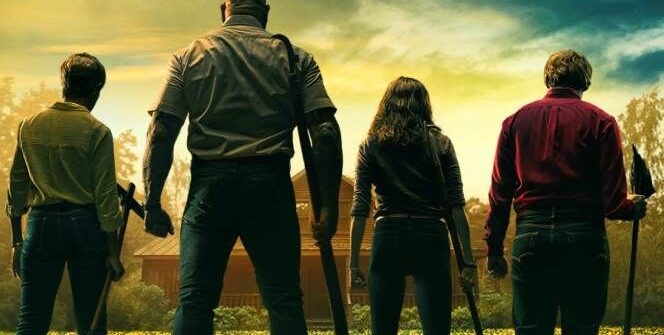
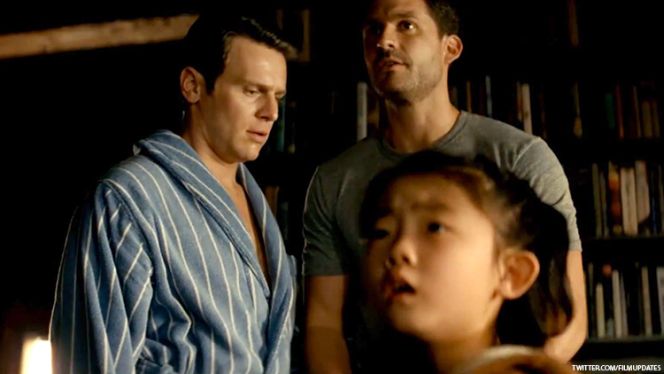
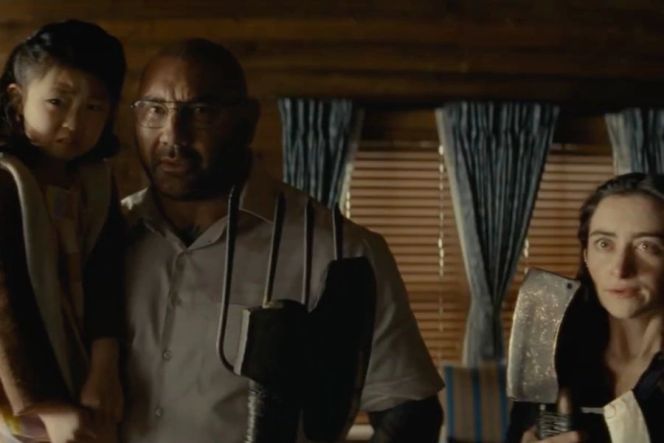
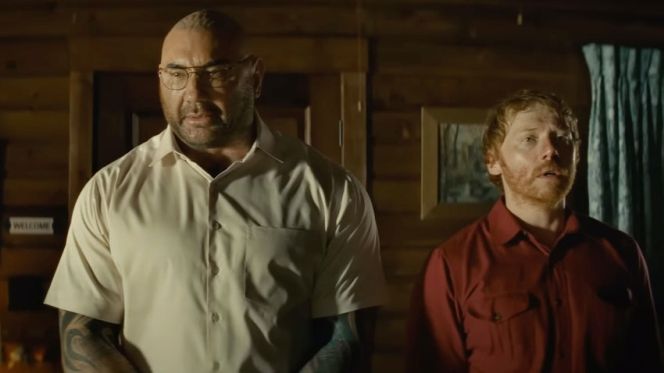
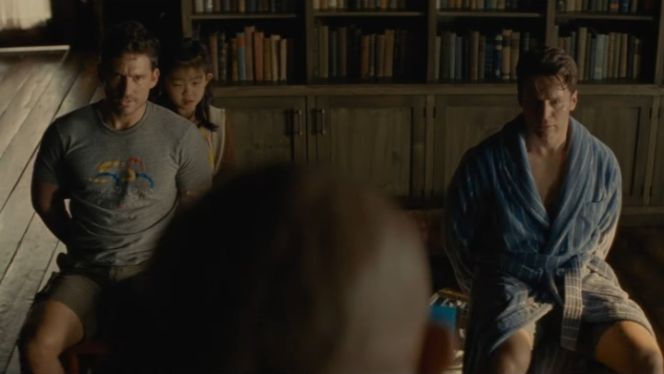














Leave a Reply